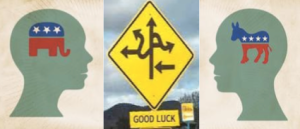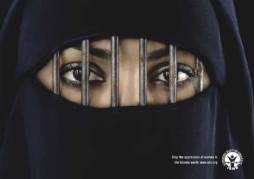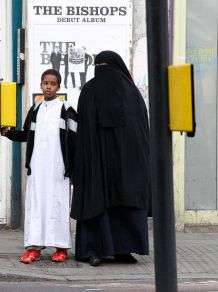In an earlier post, I expressed my feelings towards politics & the Mosque. Muslim Americans are no less conflicted about the role of politics in religious institutions, and vice versa, then the average Christian American. 40% of American Muslims polled say that they attend religious services in the Mosque at least once a week , while 45% of Christians say they attend Church at least once a week.
*Less than a majority of American Muslims (45%) believe that the Mosque should express views on political and social issues, while 54% of American Christians believe that the Church should do the same.
The matter of the place of a Mosque in society has been complicated for Muslim Americans. The place of the Mosque on matters of politics has always varied depending on the issues essential to a particular Muslim society. For example, in areas where there are divided factions in society, based wither on race or class, most likely the main issues a Mosque would be advocating (if it was intent on social change) would be uniting divided groups through their shared heritage in Islam. Since divided groups likely have opposing political stances, politics would likely be an avoided subject matter in such a Mosque. Conversely, in theocratic societies the Mosque is highly politicised and many leaders in the Mosque are also leaders in the political community. Additionally in societies where political dogma is common, a secular government may use the Mosque as an extension of its propaganda machine. In a previous post I talked about the demographics of Muslim Americans and how many Muslim Americans are immigrants or the children of immigrants. Depending on the political and social landscape in a Muslim American’s country of origin, they may or may not support the concept of a Mosque taking a particular political stance.






